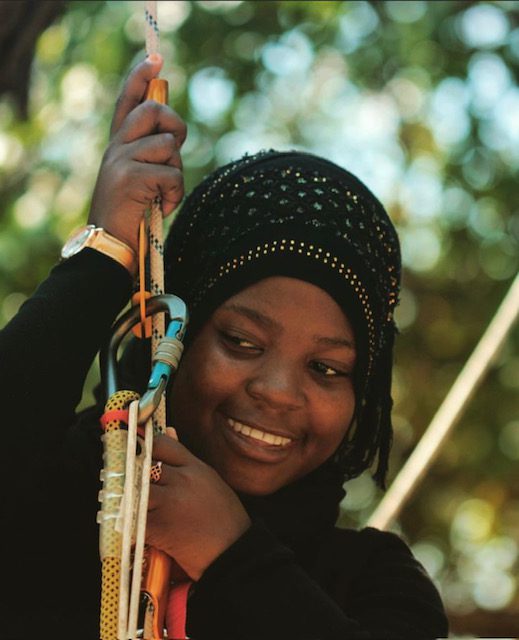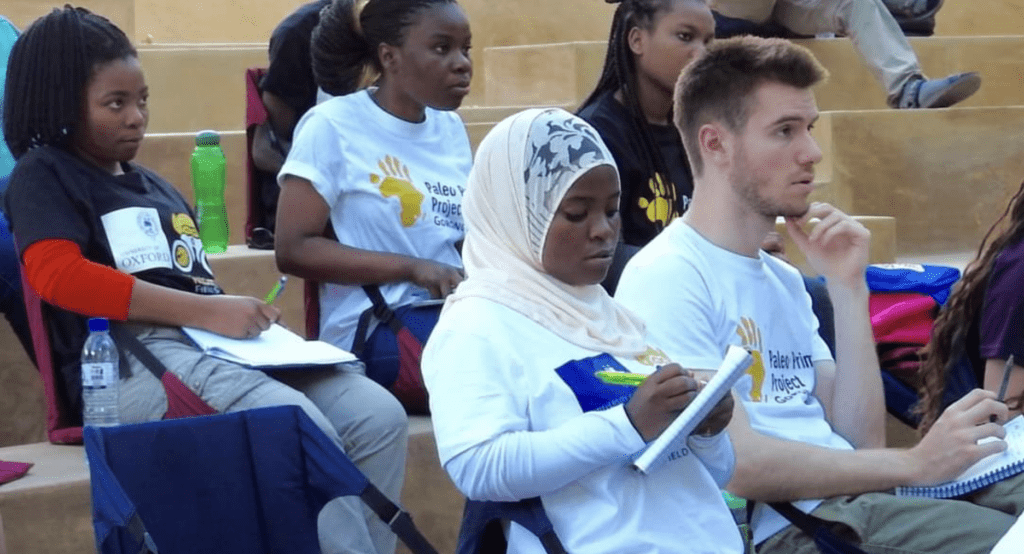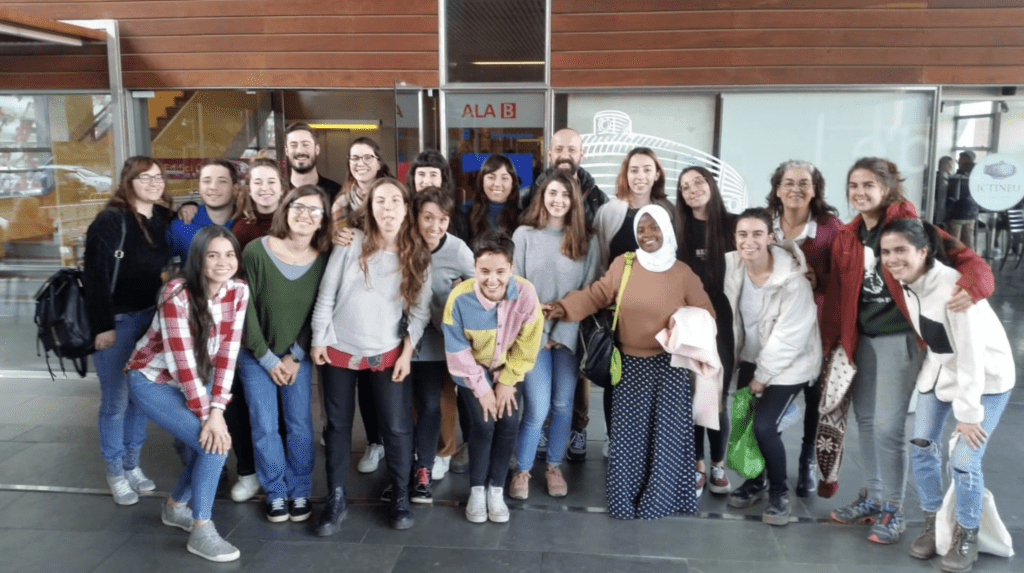by Professor Susana Carvalho, Associate Director, Paleontology and Primatology, Gorongosa National Park
The Gorongosa Project is thrilled to celebrate Rassina Farassi’s completion of a Master’s Degree in Primatology!
Rassina Farassi was born in Cabo Delgado province, Mozambique. She earned her BA degree in Archaeology and Cultural Heritage at the Universidade Eduardo Mondlane. A grant from PAST Africa paid some of her tuition fees.
She first visited Gorongosa in 2017. Rassina became fascinated by the ongoing primatology work in Gorongosa National Park, and decided to study modern primate behaviour to understand how our ancestors evolved. She was very keen to investigate the origins and development of technology in humans – and, for this, she decided to focus on learning more about primates, particularly the baboons of Gorongosa. Under the supervision of Prof. Susana Carvalho, she was accepted by the University of Girona, Spain, to start a Master’s Degree in Primatology.
Rassina (left) attending the 2019 Field School in Chitengo, Gorongosa National Park, at the start of her Master course.
Rassina spent 10 months in Spain, followed by 13 months in the field, tracking baboons on foot from dawn to dusk, to collect data for her project: Why don’t baboons use tools? Like us, baboons have large brains, are highly opportunistic, and terrestrial – so, instead of asking how did humans start to use tools, she took an in›novative approach and asked why is it that some primates did not evolve this behaviour like humans? Rassina defended her thesis this September and obtained a remarkable score of 9.44 (out of 10).
Rassina with her Master cohort, and the Director of the Master Prof Miguel Llorente, in Girona, Spain (2020)
In July, Rassina was, for the first time, in charge of the primatological training of students during the 2023 Field School- and it was a success! The students applauded Rassina, after she taught an introduction on how to observe and record wild primate behaviour (2023)
She then headed to the Kalahari Desert where she enrolled in a prestigious field course on animal behaviour led by the Max Planck Institute (Germany). She was the first non-South African student to enrol in this course! In August Rassina presented for the first time in the most important primatological conference, the IPS in Malaysia. Her work was praised, and she received an invitation to be the plenary speaker in the Congress of the Brazilian Society for Primatology in 2024! What a busy 2023!
Rassina in the Kahalari Desert, in 2023, learning how to conduct acoustic recordings. She extended her field and lab skills during this field course on Animal Behaviour.
Rassina is the first Mozambican to obtain a Master’s in primatology and pursue a career in this field. Primates are threatened all over the world. Rassina will play a key role in creating awareness in Mozambique and calling for more protection of these species, as they are key seed dispersers and a very important part of ecosystem balance. Rassina will continue to work with the Gorongosa Paleo Primate Project to lead the management of the primatology section and will continue her studies. She will also teach at the Universidade Eduardo Mondlane, where primatology is now being incorporated in the archaeology and anthropology degrees.
Rassina in her own words
“My biggest career dream is to become a good field primatologist and academic, and I wish to grow as a scientist. Not just this, but I also want to create opportunities for field training in primatology in Mozambique, like short field courses for students, which I would love to lead.
My experience in Girona, Spain, was fantastic and very rewarding. I learned so much and have so many memorable experiences, even if I was there during the global pandemic! I had the opportunity to see and study two groups of chimpanzees living in the Fundació MONA sanctuary, and that will always remain in my memory. The opportunity to do this Master’s in Spain was even more important given that I am the first Mozambican to obtain a degree in this area. This has enabled me to develop my scientific career and present my research internationally this year, which was a big step for me!
I see a bright and promising future ahead because I feel I am in the right path. With a lot of perseverance and resilience, working hard, and dedicating myself to study primates further, I feel I can continue to be a trailblazer, and be an example for the next generations in my country, in Africa and around the world.“
Learn more about Rassina’s work in the video below – “Bones and Baboons”




Keep it up my sister and I wish you the best. Allah bless your paths👏